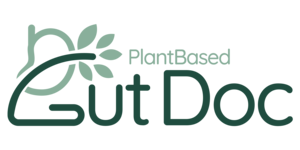There’s a lot of confusion about whether or not soy is good for you. The truth is that, despite all of the misinformation out there, soy is healthy!
It’s a nutrient-dense source of protein that can provide significant health benefits, especially when eaten as an alternative to red meat. Soy contains an impressive list of micronutrients including calcium, iron, magnesium, manganese, phosphorus, potassium, vitamins B1, B2, B3, B5, B6, B9, C, and zinc. It also contains essential omega 3 and 6 fatty acids and fiber.
Not all soy products are created equal however! Here’s a list, from healthiest to least healthy:
- Soybeans in their purest form, with edamame being the healthiest
- Fermented soy products like tempeh and natto
- Tofu in its many forms, such as silken, firm, and extra firm. These forms are very healthy and versatile
- The soy found in ultra-processed products
So why are there so many myths around this food?
Fact vs. fiction on soy
For a while, there was a huge trend in the health and nutrition industry to frame soy as “the bad guy” and much of that propaganda still lingers. Concerns over the safety of soy are largely based on biased, nonhuman animal studies that do not adequately reflect human biology. Now that experts have taken a deeper dive into studying soy, they’ve found that many of the previous myths are false and that soy actually has the opposite effects of many of these baseless claims. Below are just a few of these myths and facts to clear the air.
Myth #1: Soy increases risk of cancer
False! In fact, significant evidence shows that soy can reduce the risk of breast, colon, prostate, and other cancers for both women and men. Here are the FACTS:
- Consumption of one cup of soy milk or about one-half cup of tofu daily was associated with a 30% lower risk of developing breast cancer, compared with women who have little or no soy products in their diets.
- One theory behind this protective effect suggests that phytoestrogens (plant hormones) may play a role in blocking our own estrogens from promoting cancer. This is still being studied.
- Soy has been associated with protective effects for gynecological cancers. Women who ate the most soy had 30% lower risk of endometrial cancer, and appeared to cut their ovarian cancer risk nearly in half. More on why in myth #2.
- The Women’s Healthy Eating and Living Study showed that women previously diagnosed with breast cancer gain a major advantage by incorporating soy products into their diets.
- This is further supported by a study published in JAMA which followed 5,042 women previously diagnosed with breast cancer over a four-year period and showed that women who regularly consumed soy products, such as soy milk, tofu, or edamame, had a 32% lower risk of recurrence and a 29% decreased risk of death, compared with women who consumed little or no soy.
- Another study from Kaiser Permanente had the same findings. Women who avoid soy products get no advantage at all. Those who include soy products in their diets appear to cut their risk of cancer recurrence.
- A 2012 analysis that combined the results of prior studies, including a total of 9,514 women from the United States and China, showed that those who consumed the most soy products were 25 % less likely to have their cancer return, compared with those who tended to avoid soy products.
Myth #2: Soy causes hormone imbalances
False! There are many positive hormonal benefits to consuming soy, especially for women. In fact, soy has both the benefits of estrogen and hormone therapies with none of the risks. Here are the FACTS:
- There are two types of estrogen receptors in our body: alpha and beta receptors.
- Our own body’s estrogen (and hormone replacement therapies) binds to the alpha receptors.
- Phytoestrogens (the ones found in plants like soy) try to bind to beta receptors first. If those receptors are saturated (if we, for example, eat an unreasonable amount of soy- like 30 cups of tofu per day) then they will bind to the alpha receptors.
- Different tissues in our body react differently to soy depending on the estrogen receptors they possess. This is key to understanding the healthful properties of soy phytoestrogens.
- Let’s analyze some of our body tissues and draw some conclusion about the effects of soy:
- The liver only contains alpha estrogen receptors so there is normally no interaction with soy’s phytoestrogens. On the other hand, oral contraceptives and hormone therapies are associated with increased risk of blood clots because they bind with the liver’s alpha receptors.
- The uterus contains alpha receptors, so, like the liver, there is no negative impact from soy. While estrogen-containing drugs may increase the risk of endometrial cancer up to ten-fold, phytoestrogen-containing foods are associated with significantly less endometrial cancer. In fact, soy has been associated with protective effects for these types of gynecological cancers!
- Though soy phytoestrogens don’t appear to have any effect on the lining of the uterus, they still seem to dramatically improve menopausal symptoms. In fact, soy has the benefits of estrogen and hormone therapy for treating symptoms of menopause with none of the risks.
- Human bone cells carry beta estrogen receptors, so consuming phytoestrogen significantly increases bone mineral density—consistent with population data suggesting “high consumption of soy products is associated with increased bone mass.”
Myth #3: Soy feminizes men
False! Soy is a rich source of isoflavones, which are naturally occurring plant chemicals classified as phytoestrogens. Phytoestrogen is not estrogen! Soybean isoflavones differ at both the molecular and clinical levels from the human hormone estrogen and do not affect testosterone levels in men.
A lot of this confusion stemmed from case reports of men who experienced hormonal disturbances as a result of consuming extremely large amounts of soy (about nine times the amount typically consumed by older men in Japan, a country where soy is a major component of the diet.) A lot of these men were also deficient in other key sources of nutrients. This just goes to show that too much of anything is not good and we must maintain a balanced diet for optimal health. As stated above, soy was found to reduce the risk of cancer for both women and men. This includes prostate cancer in men.
Myth #4: Soy negatively impacts thyroid function
False! For individuals with healthy thyroid function, studies have found little to no negative effects of soy on the thyroid and the benefits far outweigh any concerns. If you have existing thyroid issues, talk to your doctor about what is right for you.
Myth #5: All soy is GMO
False! While there is an alarming percentage of genetically modified soy products, the claim that “all soy is GMO” is not true. When it comes to soy, my recommendation is to ensure it is organic! Non-GMO soy foods like soybeans, tofu, edamame, soy milk, miso, and tempeh are widely available in stores and clearly labeled “non-GMO.” Just like any other food group, it is important to remain conscious about what we are putting into our bodies.
The bottom line
Next time you hear a radical statement like, “soy is bad for you,” I hope you take this with a grain of salt and do your research. There is a lot of misinformation out there which is why we should all be conscious consumers and advocates for our health. Also, the mantra “everything in moderation” holds true when it comes to consuming any foods and this includes soy. Incorporating organic soy products into a well-balanced diet is recommended but make sure to contact your doctor with any additional questions or concerns.
Are you looking for help to optimize your health?
We can help at Planted Forward! Our integrative team of specialists and dietitians work alongside you to make sure you are in tip-top shape!
DISCLAIMER: THIS WEBSITE DOES NOT PROVIDE MEDICAL ADVICE
All the information on this website, including, but not limited to, text, graphics, images, and other material are for informational purposes only. No material on this site is intended to be a substitute for professional medical advice, diagnosis, or treatment. Always seek the advice of your physician or other qualified health care professional with any questions you may have regarding a medical condition or treatment before undertaking a new health care regimen, and never disregard professional medical advice or delay in seeking it because of something you have read on this website.










